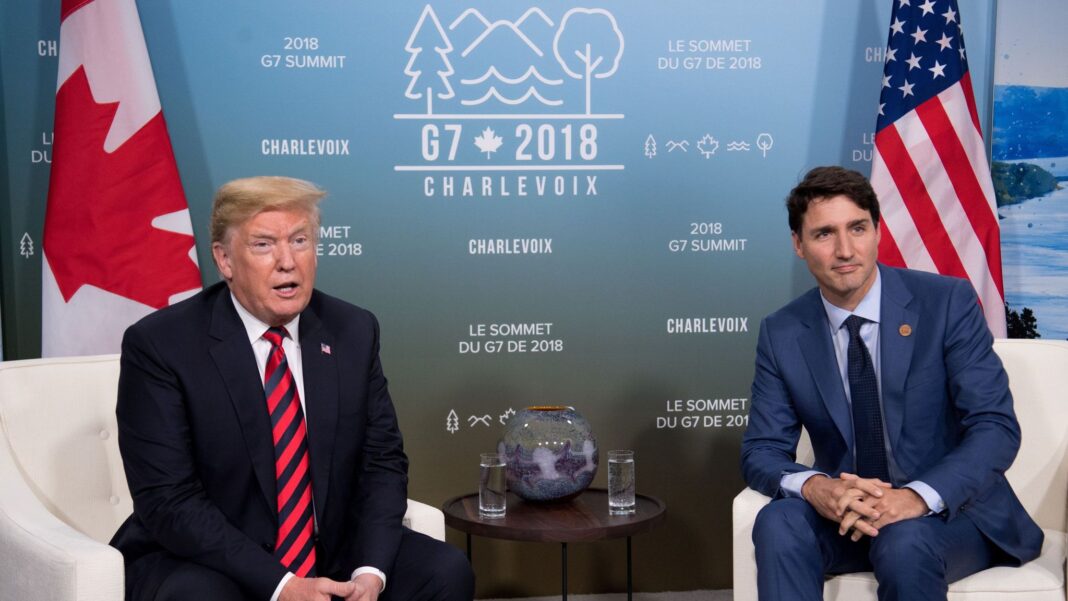With Donald Trump back in office, Canada faces both renewed opportunities and significant challenges. The relationship between Prime Minister Justin Trudeau and Trump has historically been rocky, from disputes at NATO summits to Trump’s past criticisms of Trudeau.
Despite these past tensions, Trudeau extended a congratulatory message, signaling cautious optimism about collaborating once again. However, if Trudeau’s struggling Liberal government faces a snap election, it could mean a change in Canada’s leadership, potentially further complicating diplomatic relations.
Key areas at stake include trade, defense, and border security.
Trade troubles
Canada relies on the U.S. for 75% of its exports, yet Trump’s proposed 10% tariffs threaten to impact the Canadian economy.
Economists estimate this could cut Canada’s GDP by $7 billion, weaken the Canadian dollar, and strain an already slowing economy.
The future of the USMCA (or CUSMA) trade deal is also uncertain, with the U.S. demanding concessions, such as a possible revision to Canada’s Digital Services Tax, which targets major American companies like Google and Amazon.
A ‘fair share’ on defence
Defense is another point of pressure. Trump has long pushed allies to increase their NATO contributions, and he is expected to urge Canada to expedite its timeline for reaching NATO’s 2% GDP spending target.
Deputy PM Chrystia Freeland has reassured Canadians that their government remains committed to safety, prosperity, and sovereignty, but meeting Trump’s demands could be financially challenging.
A plan to secure the border
Lastly, Trump’s tough stance on immigration and border security raises questions about the shared U.S.-Canada border.
The issue of asylum seekers crossing into Canada through unofficial points has prompted Canadian officials to prepare a plan, aiming for tight collaboration with the U.S. on border management. As the two countries navigate these issues, Canada will lean on its deep trade connections and shared values with the U.S. to maintain a strong partnership, but the path forward will likely require careful diplomacy and flexibility.






